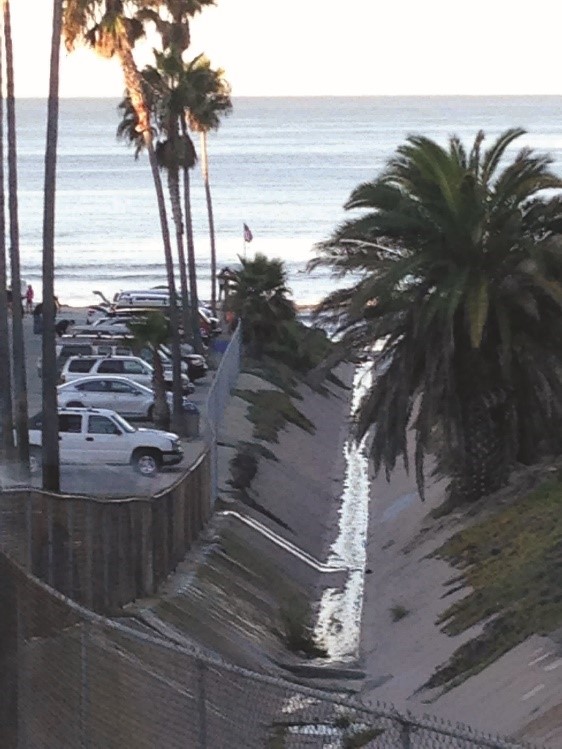Surfer rainfall study helps focus water-quality discussion

SCCWRP and its partners have completed a three-year epidemiological study examining the health impacts of entering coastal waters during and shortly after rainfall, a study that has raised important public policy questions about whether existing water-quality standards are protecting beachgoers during wet weather.
The Surfer Health Study, which tracked the illness rates of 654 San Diego-area surfers during the rainy winter season, found that surfers experienced increased rates of both gastrointestinal illness and other illness symptoms when they surfed during rain events and/or in the three days that followed.
However, when the illness data were correlated with quantitative measurements of aquatic microbial contamination at two popular San Diego surfing spots, the rate at which surfers contracted gastrointestinal illness was lower than the illness rate predicted under federal guidelines. The guidelines, which were issued by the U.S. Environmental Protection Agency in 2012, predict the relationship between gastrointestinal illness rates and corresponding microbial contamination levels.
Given these findings, water-quality managers are now tasked with determining what additional clean-up actions are needed to reduce the illness rates documented in San Diego.
Rainfall makes Southern California’s coastal zone particularly susceptible to waterborne contamination, as the pathogens that can make people sick wash off the land and travel through storm drains to the beach. Although most Southern California beachgoers heed warnings by public health officials to stay out of the water following rainfall, surfers are a notable exception; thousands are attracted to the favorable surf conditions that accompany storm events.
During the study, which was conducted during the winters of 2013-14 and 2014-15, San Diego surfer volunteers were asked to use a smartphone app to confidentially report their daily surfing activities and symptoms of illness. They received gift certificates to a surfing retailer for their participation.
Study participants logged a combined 10,081 surfing sessions; 13% of these sessions took place during wet-weather conditions, making the beach epidemiology study one of the largest of its kind in the past 30 years.
The study documented an excess gastrointestinal illness risk of 12 cases per 1,000 for surfers who entered the water in wet weather, for a total of 30 cases per 1,000. The EPA’s water-quality criteria, however, specify that there are to be no more than 32 to 36 excess cases per 1,000.
The full epidemiology study will be published on SCCWRP’s website in early August. For more information, contact Ken Schiff.
More news related to: Microbial Risk Assessment, Microbial Source Tracking, Microbial Water Quality